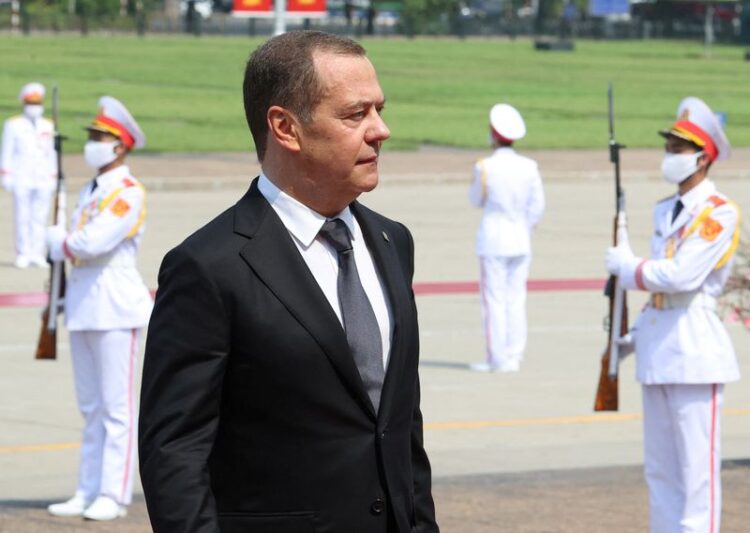By Guy Faulconbridge
MOSCOW (Reuters) – A close ally of Russian President Vladimir Putin said on Wednesday there was no reason for Moscow not to destroy its enemies’ undersea communication cables given what he said was Western complicity in the Nord Stream pipeline blasts.
A sharp drop in pressure on both pipelines was registered on Sept. 26 and seismologists detected explosions, triggering a wave of speculation about sabotage to one of Russia’s most important energy corridors.
It is still unclear exactly what happened, and Western governments have denied involvement. Some U.S. and European officials initially suggested Russia was to blame for blowing up its own pipeline, an interpretation dismissed as idiotic by President Vladimir Putin.
In recent months, U.S. newspapers including The Washington Post, The New York Times and The Wall Street Journal have reported that the U.S. Central Intelligence Agency knew of a Ukrainian plot to attack the pipelines. Ukrainian President Volodymyr Zelenskiy has denied Ukraine attacked them.
“If we proceed from the proven complicity of Western countries in blowing up the Nord Streams, then we have no constraints – even moral – left to prevent us from destroying the ocean floor cable communications of our enemies,” Medvedev, a former Russian president who is now deputy chairman of Russia’s Security Council, said on Telegram.
Sub-sea cables which criss-cross the world’s oceans have become the arteries of global communications. Their importance has made them the focus of growing geopolitical competition between China and Russia on the one side and the United States and its Western allies on the other.
Russia has repeatedly said the West – and particularly the United States and Britain – was behind the Nord Stream blasts. The Kremlin has repeatedly said that the world should know the truth about what happened.
Moscow has demanded an international investigation into the destruction of the pipelines, a Kremlin-designed project to circumvent Ukraine in exporting its gas under the Baltic Sea directly to western Europe.
“It would be useful to think about the reasons for the stubborn unwillingness of the collective West to launch a transparent and objective international investigation under the auspices of the U.N. Security Council,” said Andrey Ledenev, minister-counsellor at the Russian embassy in Washington.
(Reporting by Reuters; Editing by Andrew Osborn and Philippa Fletcher)
[ad_2]
Source link







